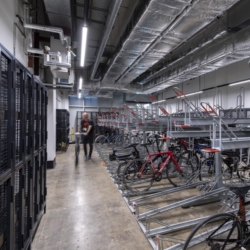September 10, 2024
Firms are optimistic about AI, but most have little idea what to do with it
 Despite high levels of optimism about their adoption of artificial intelligence, two thirds of firms say they are not ready to implement AI in projects yet, according to a new poll. The Riverbed Global AI & Digital Experience Survey suggests that while 94 percent of those surveyed say AI is a top C-Suite priority and 91 percent agree it provides a competitive advantage, only 37 percent are fully prepared to implement projects now, However, 86 percent of leaders say they expect their organisation to be fully prepared to implement a strategy and projects by 2027. (more…)
Despite high levels of optimism about their adoption of artificial intelligence, two thirds of firms say they are not ready to implement AI in projects yet, according to a new poll. The Riverbed Global AI & Digital Experience Survey suggests that while 94 percent of those surveyed say AI is a top C-Suite priority and 91 percent agree it provides a competitive advantage, only 37 percent are fully prepared to implement projects now, However, 86 percent of leaders say they expect their organisation to be fully prepared to implement a strategy and projects by 2027. (more…)


































